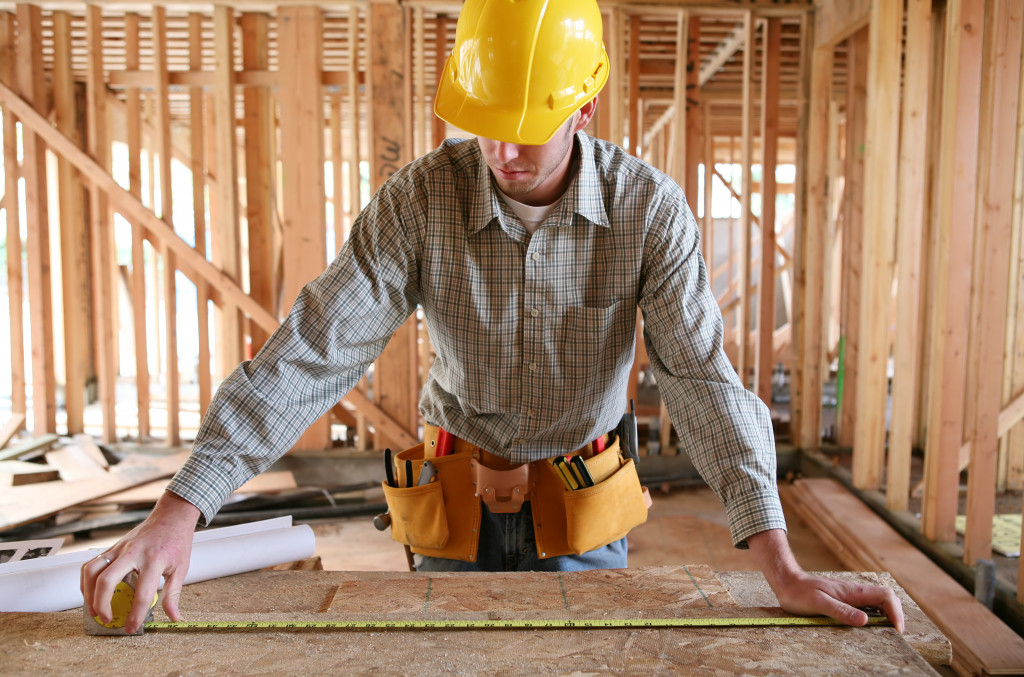Construction is a broad congregation of professionals, all with the common goal of putting up a structure either for residential or commercial purposes. No construction project is simple. For a structure to be successfully built, it requires unrelenting coordination between stakeholders and immediate remedies on issues encountered in the process.
It is often the contractor’s job to oversee the actions and decisions of everyone involved in a construction project, from the project managers and architects to engineers and construction workers. A contractor’s role is crucial. Otherwise, it’s not given ample spotlight compared to the people who render physical labor day and night on-site.
Although their role can be summed up to a supervisory one, their impressive grasp of construction practices hugely determines a project’s flawless completion. Here are just some of the things they do to ensure that:
Set the Day’s Course
A contractor heads to the office to check their email and peruse or reply to important ones. They gather their administrative team to discuss the deliverables for the day and ensure everyone’s attention towards ongoing bids and projects. That way, paperwork continues to go underway while they are away from the field.
Meet Suppliers
If you can follow a contractor on a day in their life, you might see them jumping from one meeting to another, and these meetings are usually with suppliers. These suppliers, who can be producing or distributing construction equipment or materials or are themselves providing construction-related services such as CCTV installation, are all trying their stakes to become the exclusive provider in any project. And so, they come up with the most enticing bids.
It is, therefore, the contractor’s role to objectively assess the pros and cons of every proposal they are presented with. The convenient part of all of this is that, often, they are treated with free lunches by these suppliers to give a better impression. However, choosing the suppliers that best match a specific project’s needs is more tedious than imaginable.
A contractor can take days comparing line by line of material and pricing lists from different suppliers. They must select the ideal suppliers. After that, they have to ensure that everything agreed upon is formalized into a written contract rather than leaving them as handshake deals. That way, out-of-budget expenses, the purchase of additional materials, in other words, can be avoided.

Meet Subcontractors and Staff
Hiring subcontractors is a common practice, especially for exceptionally big construction projects. At some point, a contractor can meet a group of subcontractors they can attest is trustworthy, but that usually takes time and several test work. Throughout their lifetime, they might also fall victim to sleazy or deceptive subcontractors who can make or break their industry track record. So it is their responsibility to keep a laser-sharp judgment towards anyone who approaches them.
A contractor would also like to form a reliable administrative team to whom they can delegate paperwork. That includes, but is not limited to, consolidating project proposals, accounting, and HR. Contracting, after all, has a lot to do with bridging the gap between construction-related documents and actual implementation. If anything, they need extra eyes and brains to take a careful look at details of upcoming projects and anticipate what can go wrong while it’s not yet too late.
Prepare the Construction Site
A contractor ensures that the property to be developed passes all necessary tests. Once this requisite is ticked off the list, only then can materials and equipment be transported in. This has to be done in a chronological order that follows the activities enumerated in the work plan. Of course, a contractor must ensure the construction site has safety gear and reminders before any member of the construction team even sets foot inside.
Visit the Site
Depending on how many projects they are currently managing, they drive to several construction sites in a day. They conduct spot audits on the quality of the staff’s work and whether safety protocols are in place. They take time to speak to the site supervisor to check how well the project is going timeline and quality standard-wise. They also hear out any concerns from the laborers through the supervisor and provides them with remedial advice.
A contractor wastes no minute in their day, all to pave the way for a project’s fruition. One misstep can mean consequences that can delay the progress. To be a good contractor, one must have an unlimited passion for construction and be meticulous to every detail. This way, they can manage how a project proceeds.

